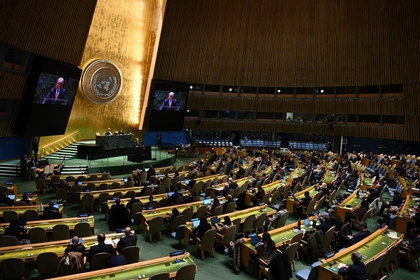Construction progresses at a new Russian plant for Iranian drones in the Alabuga economic zone in Tatarstan, about 960 kilometers east of Moscow.
Satellite imagery obtained by Reuters reveals significant progress in building the facility, a project initially detected by US satellites in April 2023.
JOIN US ON TELEGRAM
Follow our coverage of the war on the @Kyivpost_official.
According to a report from the Institute of Science and International Security cited by Reuters, the plant’s construction pace corresponds with Russia’s plan, as outlined in documents received from The Washington Post earlier this year.
“With winter fast approaching... Russia can be expected to accelerate its Shahed-136 attacks against Ukraine’s vital energy infrastructure, causing brutal living conditions for the civilian population,” the report said.
Beyond mass-producing Iranian Shahed-136 UAVs, according to other leaked documents, the plant will be used to enhance Iranian production processes, facilitating the creation of more advanced drones with improved capabilities compared to existing models.
Despite concerns over Russia’s plans, neither the United States nor its allies have imposed sanctions on the owner of the plant, Alabuga, or associated companies.
In a strategic shift, Russian military experts, as reported by Defense Express on Nov. 9, suggest that Russia is focusing on drone production over missiles.
The Russian military-industrial complex is redirecting significant resources to establish drone production capabilities in both the public and private sectors.

US Urges Backing of ‘Simple’ UN Resolution as Trump Calls for Putin-Zelensky Talks
President Zelensky, on Sunday, Nov. 12, warned that Ukraine needs to gear itself up for potential Russian winter attacks on critical infrastructure.
Last year, consistent attacks on Ukraine’s energy grid resulted in severe consequences, leaving many without heating and electricity during the harsh winter season.
“We must be prepared for the possibility that the enemy may increase the number of drone or missile strikes on our infrastructure,” Zelensky said.
You can also highlight the text and press Ctrl + Enter











